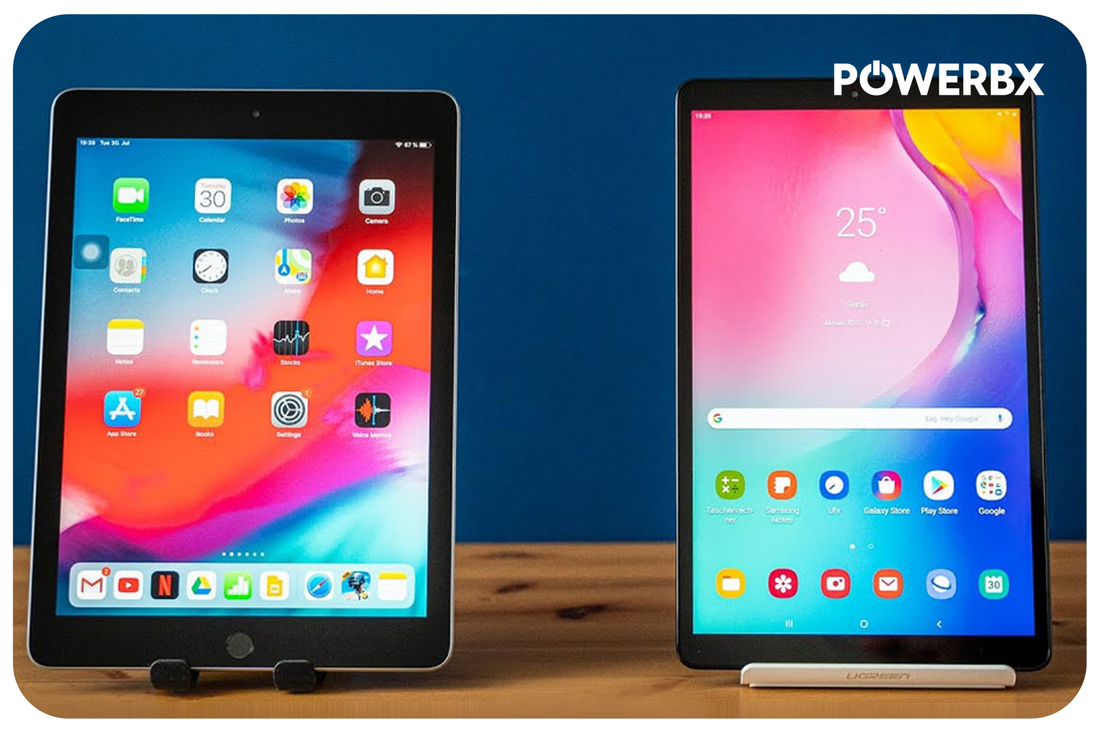Choosing Displays: iPad vs Android Explained
When it comes to enhancing business room management with interactive displays, the decision between iPad and Android devices is pivotal. Both platforms offer a suite of features and benefits, but understanding their differences is crucial for making an informed choice that aligns with your business needs. Let's delve into the unique aspects of each, ensuring you select the perfect fit for your room management system.
1. User Interface and Ease of Use

iPad: iPads are renowned for their intuitive interface. Apple's iOS is designed for simplicity, making it easy for users of all tech levels to navigate. This can be especially beneficial in a business environment where time is of the essence, and ease of use is paramount.
Android: Android devices offer a customizable interface. While this means a steeper learning curve, it also allows for more flexibility in tailoring the device to specific business needs. For companies seeking a more personalized touch, Android could be the way to go.
2. App Ecosystem and Integration
iPad: The Apple App Store is a robust platform with a plethora of apps designed specifically for the iPad. This includes a wide range of room scheduling and management applications that are often optimized for iOS, ensuring smooth performance.
Android: Android’s Google Play Store also boasts a vast selection of apps. However, the open-source nature of Android allows for greater customization and integration with third-party applications, which can be a significant advantage for businesses with specialized requirements.
3. Hardware Quality and Reliability
iPad: Apple's control over both the hardware and software of their devices results in a highly reliable and seamless experience. The build quality of iPads is generally high, offering durability and a premium feel that can reflect well in a business setting.
Android: Android devices, made by a variety of manufacturers, offer a wider range of hardware quality. Higher-end Android tablets can compete with iPads in terms of build quality, but there are also more budget-friendly options available.
4. Cost Considerations
iPad: Generally, iPads are positioned at a higher price point. This investment could be justified by their longevity, excellent support, and resale value.
Android: The diverse range of Android devices means there’s a broader spectrum of prices. Businesses can find cost-effective solutions without compromising much on performance, especially important for companies on a tight budget.
5. Security and Updates

iPad: Apple's devices are known for their strong security features and regular software updates, which can be crucial for protecting sensitive business data.
Android: While Android devices also offer good security, the fragmentation of the platform can sometimes lead to delayed updates, which might be a concern for businesses prioritizing the latest security features.
6. Customizability and Flexibility
iPad: iPads offer less customizability compared to Android but provide a consistent and stable user experience.
Android: Android devices stand out in their customizability. Businesses can tailor devices to their specific needs, which can be invaluable for certain applications.
7. Support and Ecosystem
iPad: Apple's customer service and support ecosystem are well-regarded. The integration with other Apple products can be a significant advantage for businesses already invested in the Apple ecosystem.
Android: Android devices, depending on the manufacturer, can also offer excellent support. The compatibility with a wide range of hardware and software can be a plus for businesses looking for versatile solutions.
The choice between iPad and Android displays for business room management boils down to your specific needs and priorities. If you value simplicity, consistency, and are willing to invest in a premium product, the iPad is an excellent choice. On the other hand, if you need a more flexible, customizable solution and are working with a tighter budget, Android devices may be more suitable. Both platforms offer robust solutions, so your decision will largely be influenced by your business’s unique requirements and existing technological infrastructure.

